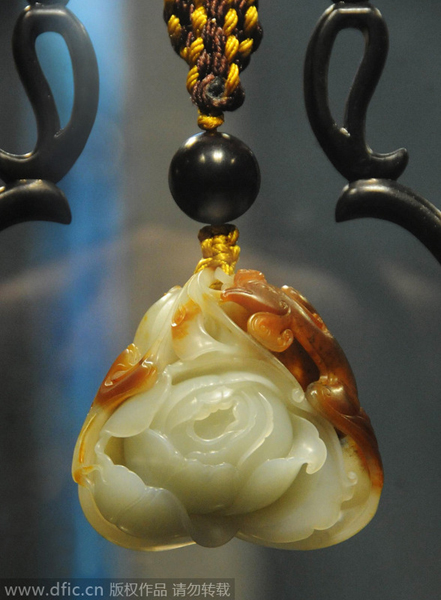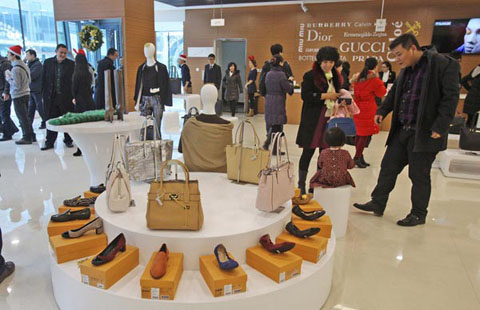Bengbu's jade industry on rocky road
By Zhu Lixin (China Daily) Updated: 2015-02-11 07:55
 |
|
A jade artifact displays at an exhibition in Shanghai, Dec 5, 2014. [Photo/IC] |
When the dynasty's reign was about to end, the business was no longer sustainable, so the craftsman had to be dismissed. They returned home and passed on their skills to the younger generations, long before the factory was established in Bengbu," he said.
In 1993, the emergence of the market economy resulted in the closure of the Bengbu Jade factory, with the loss of hundreds of jobs.
At the time, a large number of grave robbers were operating in bordering Henan province, and large hordes of jade artifacts were discovered buried underground. To boost profits, the thieves hit on the idea of asking jade carvers in Bengbu to make imitation of grave goods that could then be sold as authentic items.
The proficiency of the city's craftsmen was highlighted by an event in the 1990s when two businessmen from Zhejiang province were detained after customs officers discovered some "ancient" jade ware in their luggage. The men's explanation that the items were duplicates was dismissed until Xie Yongxue, the Bengbu craftsman who had carved the items, offered to make more of them under the scrutiny of police officers and court officials.
Despite this, the imitation business continued successfully until 2012, when it was exposed by the media. The exposure was a hammer blow to Bengbu's jade carving industry because by then most of the city's private workshops were reliant on the business.
As a result, most were forced to close and adopt new business models, and now the city's jade industry mainly focuses on the sale of large decorative items and small personal ornaments.
- China to show its IT power in CeBIT 2015
- Patent dispute threatens Xiaomi's India future
- Joint 5G standards to be set
- Chinese premier sees innovation countering slowdown
- Interest rate cut more likely
- Cheaper scheme launched for imported cars
- China's outstanding social financing up 14.3% in 2014
- Qualcommgets $975m antitrust fine

















